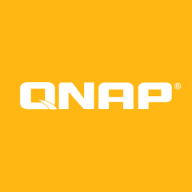

NetApp FAS Series and QNAP NAS Storage are competing products in the data storage category. NetApp FAS Series appears to have the upper hand due to its reliability and robust enterprise features, while QNAP NAS Storage is recognized for affordability and versatility.
Features: NetApp FAS Series stands out with high availability, seamless data management, and cloud integration. QNAP NAS Storage supports a wide range of apps, offers flexible configuration options, and supports virtual environments.
Ease of Deployment and Customer Service: NetApp FAS Series is suited for large-scale deployments with comprehensive support services. QNAP NAS Storage offers straightforward setup and abundant online resources, making it optimal for simpler environments.
Pricing and ROI: NetApp FAS Series involves a higher initial cost but delivers long-term returns with efficient management features. QNAP NAS Storage is more cost-effective initially, appealing to budget-conscious buyers with its flexibility.

| Company Size | Count |
|---|---|
| Small Business | 31 |
| Midsize Enterprise | 37 |
| Large Enterprise | 57 |
NetApp FAS series is an enterprise-level storage system that provides a wide variety of data management services, including data protection, block and file storage, and data management.
NetApp FAS is designed to be highly scalable, allowing your organization to grow storage capacity on demand. NetApp FAS also supports multiple protocols, including NFS, SMB, iSCSI, and Fibre Channel, as well as various storage architectures, including SAN (Storage Area Network) and NAS (Network-Attached Storage).
The FAS series has multiple data protection and data management features, including snapshots, cloning, replication, and deduplication, to help secure your data and manage it more efficiently. The system integrates with other NetApp products and solutions, to create a unified data management platform. The system can be deployed on-premise, on multi-cloud environments, or hybrid.
NetApp FAS Series Benefits and Features
NetApp FAS series provides its users with several key benefits and features, including:
Reviews from Real Users
NetApp FAS Series stands out among its competitors for a number of reasons. Several major ones are its speed, reliability, and a wide variety of features.
Adriano S., IT project and infrastructure service manager, writes, “The replication feature is noteworthy because it's faster than most and it uses little bandwidth. Then there's the friendly interface that the equipment offers. With this interface, it is very easy to manage.”
Temitope O., a NetApp product manager at Hiperdist Ltd, says, “I like the unified management feature because sometimes you end up running a single protocol on the entire system. You rather have a system for a particular protocol and another system for other protocols, especially in a big environment like mine.”
QNAP NAS Storage offers advanced network-attached storage systems equipped with features to streamline data management for businesses of all sizes.
QNAP NAS Storage provides scalable, reliable solutions designed to handle data-intensive applications. It supports diverse deployment scenarios, enabling seamless integration into existing IT infrastructure. With robust security, efficient storage management, and comprehensive app ecosystems, QNAP meets the demands of various industries for storing, sharing, and protecting critical data.
What are the most important features of QNAP NAS Storage?QNAP NAS Storage is implemented across diverse industries such as healthcare, media production, and finance, effectively addressing specific data management and security requirements. In healthcare, it ensures secure patient data storage and quick retrieval. Media production benefits from high-speed data transfer and storage capacity for large multimedia files. In finance, it supports secure storage and efficient processing of sensitive financial data.
We monitor all NAS reviews to prevent fraudulent reviews and keep review quality high. We do not post reviews by company employees or direct competitors. We validate each review for authenticity via cross-reference with LinkedIn, and personal follow-up with the reviewer when necessary.